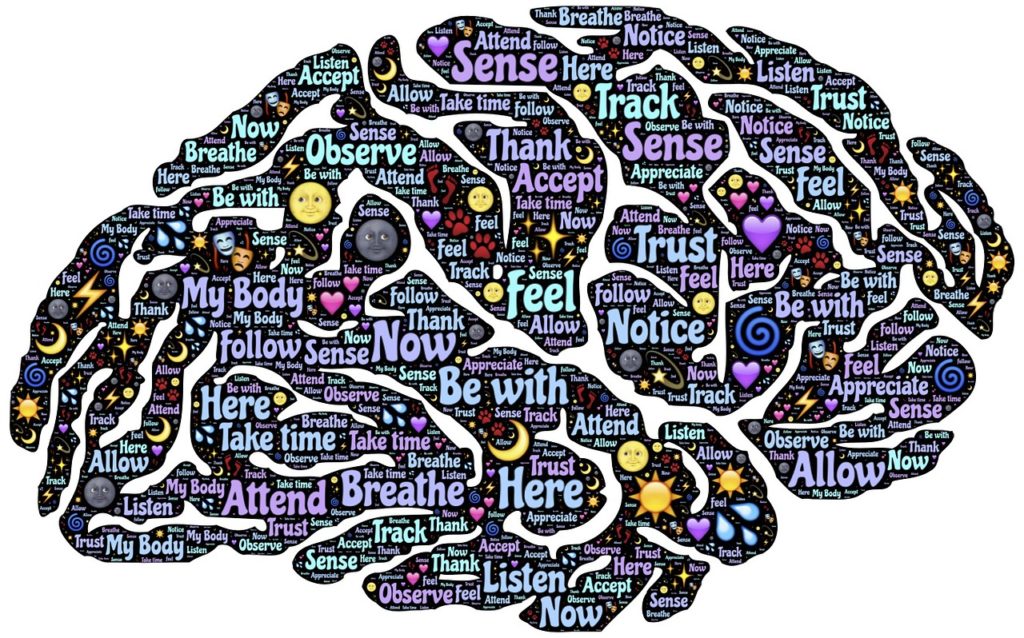Defense mechanisms are “mental coping strategies” that serve to protect us from pain, discomfort, and worry. They work – at least for a while (!) – by helping us to hide the truth from ourselves. We do this because sometimes the truth can be very difficult to accept in that moment – as in too embarrassing, or hurtful, or disgusting, or even terrifying.
We usually engage defense mechanisms unconsciously – meaning of course that we are not generally aware of even using them. And this can become problematic – as when masking a serious problem that really ought, or needs, to be addressed.
While we all engage defense mechanisms when troubled, still, we also generally come round at some point to facing our problems; and this is healthy – and a rather good thing! But when we don’t…and if we persist in refusing to face our true experiences – along with the thoughts and feelings associated with them – then these defenses can become unhealthy…and several worse and more difficult problems may develop.
For one, relying on our defenses for too long enables a given problem to develop a life of its own – and generally makes it more powerful than before. Also, if we use some defenses for too long, or too often, they start to happen “more automatically” (i.e., more frequently), which only further separates us from our true feelings – and feeds into delusion, a condition that can be even more debilitating.
The real danger is that over time, the more we close off parts of ourselves – in effect, stockpiling pain and unhappiness – and thus avoid healthy, potentially rewarding life experiences, the more anxious, nervous, and unpredictable life becomes. It’s helpful, therefore, to get familiar with these defenses, and be able to recognize their appropriate use before they get us into serious trouble.
MATURE DEFENSES
SUBLIMATION…is the healthy redirection of an emotion. E.g., when you’re feeling anxious, you do something constructive such as cooking or woodworking. Or, when angry with your boss, you go to the gym.
SUPPRESSION…is when you consciously(!) decide to “forget something,” or “put it aside,” or make the choice to avoid thinking about it. This can be helpful in the short-term…so long as you “get back to it” at a later time.
HUMOR…is (trying) to see the funny side of situations, even (especially!) when they’re stressful or potentially upsetting. It can be unhealthy when it devolves into silliness that’s actually masking avoidance.
INTERMEDIATE DEFENSES
AVOIDANCE…is making a decision not to face a person or situation that you perceive will make you uncomfortable; so you avoid seeing or being around a person, or don’t attend an event. This may have a short-term benefit; but continued use results in anxiety problems.
REPRESSION…involves the unconscious process of putting painful thoughts and memories “out of of mind” and “forgetting them.” (All defenses do this to some extent.)
DISPLACEMENT…is shifting your anger or annoyance onto someone (or something) less threatening or powerful. E.g., being angry at your boss, you “take it out” on your partner or best friend.
FANTASY…involves creating an inner world when the real world becomes too painful, difficult, or stressful. It’s okay to find temporary refuge there…but “living there” is not a healthy strategy.
IMMATURE DEFENSES
RATIONALIZATION…is about making excuses. It’s trying to make controversial behaviors or feelings justified and explained in a seemingly rational or logical manner to avoid the true (and likely embarrassing) explanation. E.g., “only heavy smokers are at risk of lung cancer;” or, as the fox said about the grapes he was incapable of getting, “They were probably sour anyway.”
DENIAL…is the refusal to admit or acknowledge the truth about something. E.g., that your wife is cheating on you (in spite of the evidence), or that you drink too much.
PASSIVE AGGRESSION…is when someone bothers you, you deliberately do something subtle or inconspicuous “to get back at them.” E.g., your spouse angers or disagrees with you, so you shrink their favorite shirt in the wash.
ACTING OUT…is presenting with negative behavior rather than confronting an unpleasant feeling directly. E.g., a child’s tantrum is a way for her to express anger toward her parent; in adults, acting out ranges from antisocial behaviors like obviously offensive or outrageous public conduct to self-injury (cutting, skin-ripping, burning).

